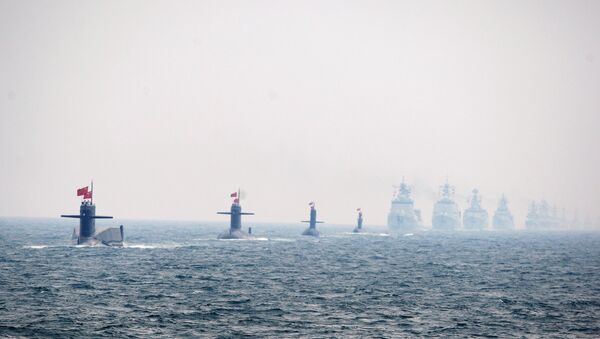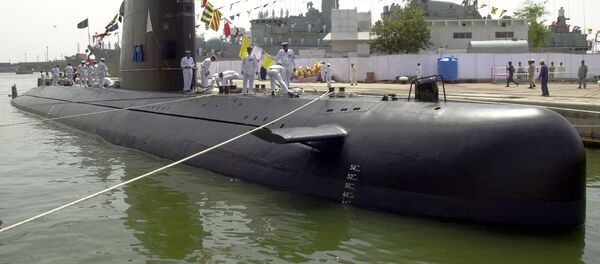In contrast to the existing passive systems of noise suppression, the technology of active acoustic protection is meant to either mask the noise generated by a submarine’s propulsion system of jam enemy sonar.
“This new Chinese technology stems from their large-scale work on the so-called topological isolators, which consist of a current-conduction dielectric and could be used as data storage devices in future quantum computers,” Kashin said.
This means that a submarine will be able to redirect sound waves bouncing off its hull elsewhere thus making sure that they are not picked up by enemy sonar.
“Just how this method will work with passive means of detection, which register noises generated by a submarine’s mechanisms, etc., is hard to tell though as in some cases such passive detectors prove more effective,” Kashin noted.
But even if this method does not work with passive acoustic detection systems, it is still a major breakthrough capable of seriously changing the existing methods of submarine warfare.
“Just how effective this new technology is going to be in real-life situations is hard to say as much will depend on its cost, consistency and ability to withstand long use in adverse conditions,” Vasily Kashin continued.
Still, the achieved results could help the Chinese Navy to considerably improve its anti-submarine capability.
“This, in turn, would be a great boost to China’s strategic defense programs and its Navy,” he said.
Never miss a story again — sign up to our Telegram channel and we'll keep you up to speed!




